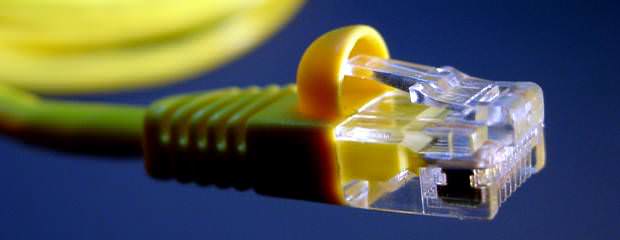
FCC Calls for Huge Changes To Federal Phone Subsidies
Noting that "broadband has gone from being a luxury to a necessity", FCC Chairman Julius Genachowski announced in a speech Thursday that the agency plans to drastically change the 8 billion dollar phone subsidy program to encourage the expansion of broadband Internet access.
The surface
On the surface, the proposed changes would benefit millions not currently able to enjoy reliable access to the Internet and would theoretically bring the United States in line, technologically, with nations in Western Europe and Japan. An estimated 18 million US Households have no high speed Internet access. If these changes are enacted, anyway half of these households could be connected by 2016. The problem is that the plan, as described in the speech, would shift federal subsidies away from landline phone access for low income individuals and families, to the development of broadband.
Under the current system, all Americans pay a small surcharge added to their phone bills that goes to the Universal Service Fund. The USF foots the bill for the aforementioned low-income phone lines as so then as for rural phone access. In recent years, the subsidy has as well been applied to wireless phone service providers. The subsidy ensures that monthly phone service fees for low income clients are capped at $6.50. Redirecting the funds to broadband would result in a price hike for these clients, a fact confirmed by Mr. Genachowski who acknowledged that phone service providers would be able to "modestly rebalance rates in areas" currently covered by the subsidy.
The problem of peripheral affordability
The problem of peripheral affordability was not acknowledged, nevertheless it looms large if these changes go through. Although the expansion of broadband into areas not currently serviced would be objectively good, a computer is a far costlier up-front investment than a phone. In spite of the increased use of VoIP (Voice over Internet Protocol) services, people forced to rely on subisidized phone service are unlikely to be able to purchase a computer capable of utilizing them and it is not unlikely that expanded broadband coverage would nevertheless go unused as a result. There is as well the moral question of raising costs on the poorest Americans at a time of tremendous unemployment and financial uncertainty.
I'm after all paying $25 a month for Dialup + $15 for a second phone line because AT&T refuses to give me DSL at any price, how about doing something about that
this is horrible ! in a cost cutting move to save money i'm droping my cellphone in order to get a landline .... DON'T CUT THE POOR !!
- · Rackspace debuts OpenStack cloud servers
- · America's broadband adoption challenges
- · EPAM Systems Leverages the Cloud to Enhance Its Global Delivery Model With Nimbula Director
- · Telcom & Data intros emergency VOIP phones
- · Lorton Data Announces Partnership with Krengeltech Through A-Qua⢠Integration into DocuMailer
